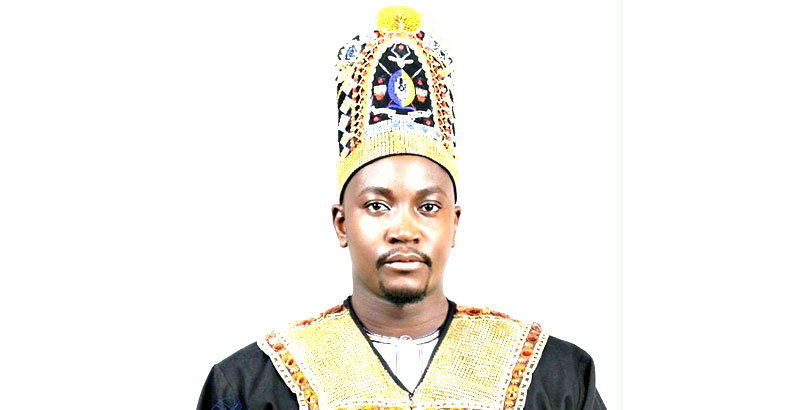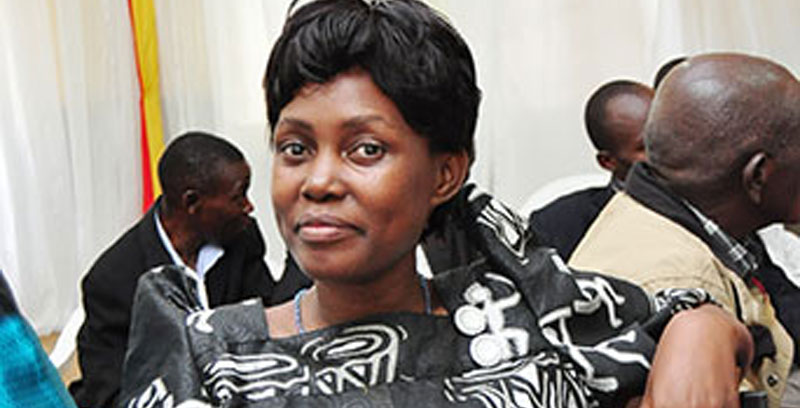Analysis
Ambassador Kyabazinga: M7’s Wizardry or Desperation
The appointment of Kyabazinga William Gabula Nadiope IV to a political office by President Museveni has left many angry, some confused while others are celebrating the move as yet another sign of Museveni’s political wizardry.
For many, the president violated Uganda’s supreme law; the 1995 Constitution as well as the Institution of Traditional or Cultural Leaders Act, 2011, which specifically bars traditional leaders from exercising administrative, legislative or executive powers.
Article 246 (1) (e) states thus: “A person shall not, while remaining a traditional leader or cultural leader join or participate in partisan politics.”
Article 12 of the Institution of Traditional or Cultural Leaders Act, 2011 also states thus: “A traditional or cultural leader shall not have or exercise any administrative, legislative or executive powers of government or a local government.”
It is an established fact that Kyabazinga Gabula Nadiope IV is one of the cultural leaders in Uganda. It is also well known that an ambassador is a representative of the head of state and by extension performs delegated responsibility which role makes him exercise executive powers contrary to section 12 as pointed out above.
This is not the first time president Museveni is testing Parliament and indeed Ugandans’ alertness about the law. The last time he seconded the late Gen. Aronda Nyakairima, a serving army man then to the position of Minister of Internal Affairs, against the law.
Besides the legalese, many people have highlighted the cultural conflicts that face Gabula as he prepares to get vetted by a Parliamentary committee chaired by his subject and Speaker Rebecca Kadaga. Others have not yet come to terms with the fact that Nadiope will one day be required to account for funds before the Parliamentary committee on Commissions, State Authorities and Statutory Enterprises (COSASE) also chaired by his other subject Abdul Katuntu.
As pointed out by Makerere University history lecturer Mwambutsya Ndebesa: “How will the Kyabazinga (king of Busoga) in his new post as ambassador appear before the Kadaga committee for vetting?!. Is Kadaga not supposed to be a subject (omuzana) of the King!”
In fact, the appointment of Gabula is seen by some as Museveni’s long short at attempting to weaken kingdoms by entangling them into murky politics which is intrinsically divisive, and therefore go a long way in entrenching ‘his’ divide and rule policy.
As remarked by one Francis Kafuko: “There are many other ways to return our glory known over the years than exposing the Kyabazinga in the doldrums of state structures that have unwinding failure. On this it is divisive than uniting the people. This fusion will just accelerate confusion that seemingly has been managed by our mandated and wholly accepted Kyabanzinga.”
Museveni’s supporters however argue that the president is not re-inventing the wheel by appointing Kyabazinga. His grandfather Sir. William Wilberforce Kadhumbula Nadiope III, who ruled as Kyabazinga from 1949 until 1955, and from 1962 until 1966, served as the first Vice President of Uganda while at the same time holding the Kyabazinga crown.
Despite being royals, the Nadiopes are well known for their political ties that have actually enabled them to clinch Ambassadorial roles. His father the late Professor Wilson Gabula Nadiope II once served as Minister of Tourism.
Former Makerere University lecturer Charles Fred Oweyagha Afunaduula, is one of Busoga’s elders with a sour aftertaste of Obote’s machinations both on Busoga and Buganda kingdoms after independence and has also raised a red flag over Gabula’s ambassadorial appointment warning that it spells doom for Busoga kingdom.
In addition, Obote ensured that the Kabaka of Buganda, Edward Mutesa, became the President of Uganda, thereby involving the heads of the two leading cultural institutions in politics at the centre according to Afunaduula.
“And so when there was political disharmony at the centre, the Kabaka of Buganda found himself in exile in England while the Kyabazinga of Busoga found himself in prison,” Afunaduula told the online eagle.co.ug, adding that the ultimate abolition of kingdoms was just a matter of time.
“Clearly the act by the President (of appointing Gabula ambassador) reduces the stature of the Kyabazinga and makes him one of the workers in his office just as he himself (Museveni) says he is not a worker or servant of Ugandans.
“Will the Basoga agree that their Kyabazinga becomes a worker in Museveni’s office, which is a landmine of political activity? Is it a message to Ugandans that it is he who makes and unmakes kings in Uganda, and therefore the king of kings?”
“In addition, wasn’t the constitutional machination against kings and the continuing treatment of Mumbere as a non-king enough signals as to who is the king?” Afunaaduula asks.
Former presidential candidate Maureen Kyalya agrees with Afunaaduula when she expressed fear that the appointment is likely to spark off riots which she says the Central government will use as a scapegoat for arresting and killing some Basoga leaders including herself.
“NRM is expecting us the Basoga to protest and then they will kill and arrest some of us charging us with murder. This is exactly how they destroyed Obusinga,” Kyalya said.
Justifying the ongoing spate of angry reaction from Basoga and other parts of Uganda over the controversial appointment, Kyalya explains that Gabula has accepted the job in breach of a five year contract with the people of Busoga.
She says: “I am leading the legal team to challenge Gabula in Court for frustrating our contract after frustrating our sitting Kyabazinga and overthrowing him. You can’t serve two masters at ago. Gabula must resign before he becomes Museveni’s watchdog. Gabula must resign if he takes the appointment,” Kyalya says in a statement posted Friday on social media threatening to go naked if Gabula persistently ignores her call to shun the controversial job.
According to elites from the Busoga sub-region opposed to the appointment including renowned city lawyer Asuman Basalirwa, it was in view of avoiding a repeat of historical mistakes that MPs saw it unfit for cultural leaders to involve in partisan politics.
“It is illegal for the Kyabazinga to accept this appointment and it is on these grounds that we are prepared to go to Court if he insists to take up the job,” says Basalirwa.
Like many other Ugandans, they are dismayed at President Museveni U-turn about the same constitutional provision which he has constantly cited in his favour to discourage cultural leaders from even making a political statement.
But NRM supporters have used other precedents to argue in favour of Gabula.
They cite the late Omukama of Toro Patrick Kaboyo whom they say was appointed as Uganda’s Ambassador to Cuba from 1990-1993 not to mention Princess Elizabeth Bagaaya Akiiki and a sister to Kaboyo who also served as a Uganda’s diplomat in Germany and the Vatican before 1995.
The timing of Gabula’s appointment, may be another factor to consider while debating the constitutional conflict. Museveni was swamped with serious allegations of corruption dubbed the Presidential Handshake as well as the thorny comments he made about him not being a servant of Uganda.
Critics argue that the appointment of Gabula has effectively killed the Handshake as well as his unpatriotic talk by deflecting public opinion from the embarrassing topics.
Comments




















